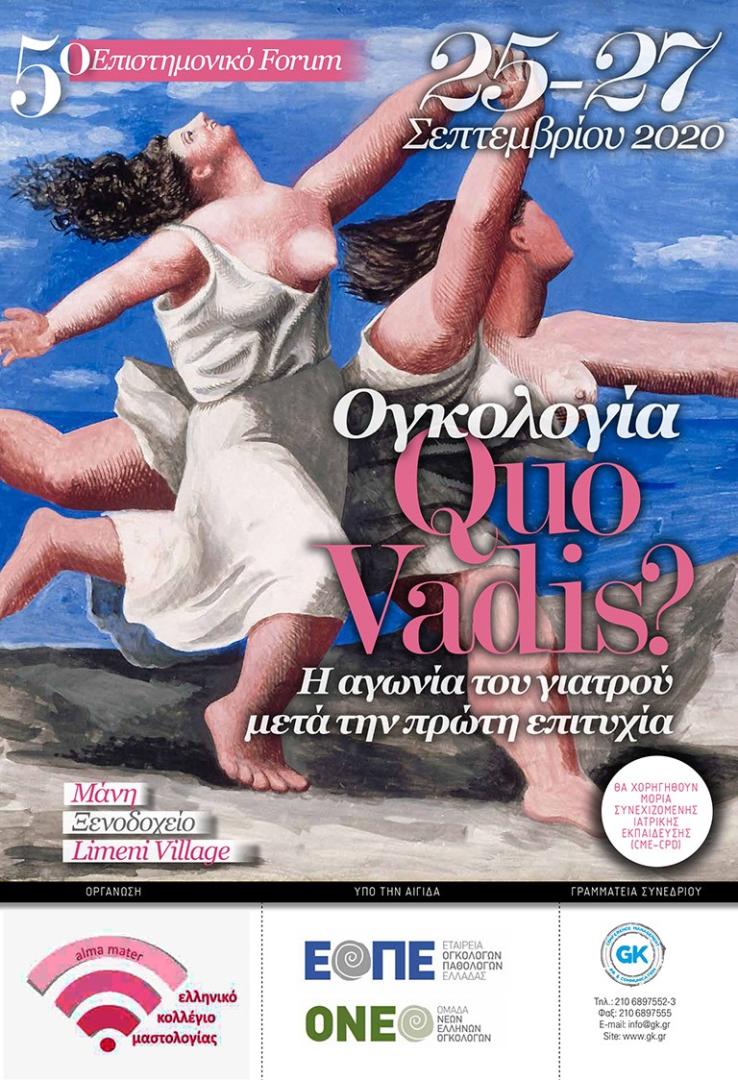
The Greek College of Senology organised the 5th conference of the “Oncology Quo Vadis” series in the end of September 2020. The topic of this conference was “The doctor’s agony after the first success”, and aimed to capture the variety of complications that emerge from clinical practice, and ways to overcome them. The target audience of the conference was mostly clinicians and scientists; Continuing Medical Education (CME) credits were provided as part of their participation.
Thanos Kosmidis from CareAcross was invited to speak on the topic of Artificial Intelligence and the various possibilities in oncology. The presentation was provided in the context of a roundtable themed “The patient’s advocate”. The delivered presentation introduced the audience to the high-level concepts of Artificial Intelligence, its general applications, and the more specific ones as related to healthcare and cancer in particular. Subsequently, it shifted the focus from the disease diagnostics to the concept of patient “micro-diagnoses”: how can the combination of continuous learning and big data support the several “micro-diagnoses” performed by patients and clinicians every day around the patient’s quality of life?
In that context, ASCAPE was presented as an innovative, EU-funded project that aims to showcase the power of such interactions and data collection, through Artificial Intelligence and Big Data and with the support of wearable devices. The two cancer types being supported (breast and prostate) were described in the context of the patient experience and the corresponding data being collected. Moreover, the selected Quality of Life Issues were presented, supported by a corresponding overview of the potential impact to patients and clinicians. During the lively Q&A session, the audience asked about the receptivity of this innovation among clinicians, and the possible risks that may arise from its assimilation in standard clinical practice.